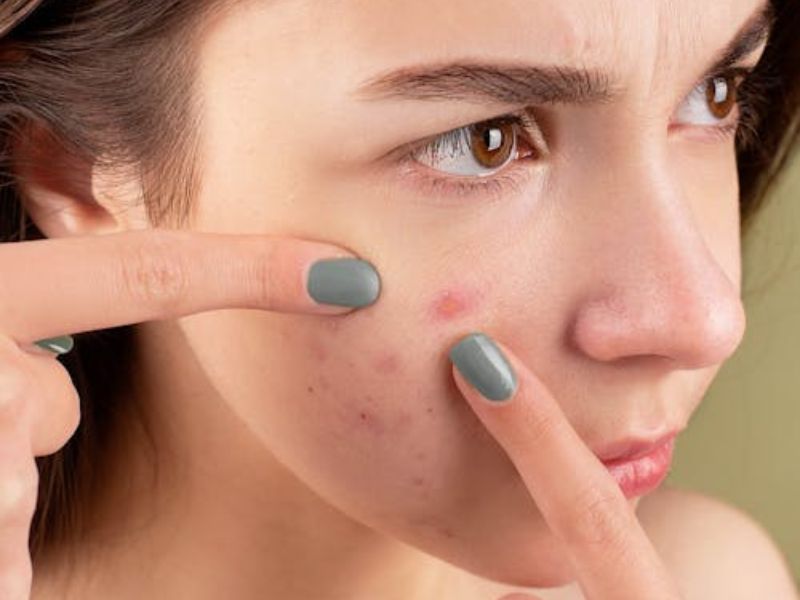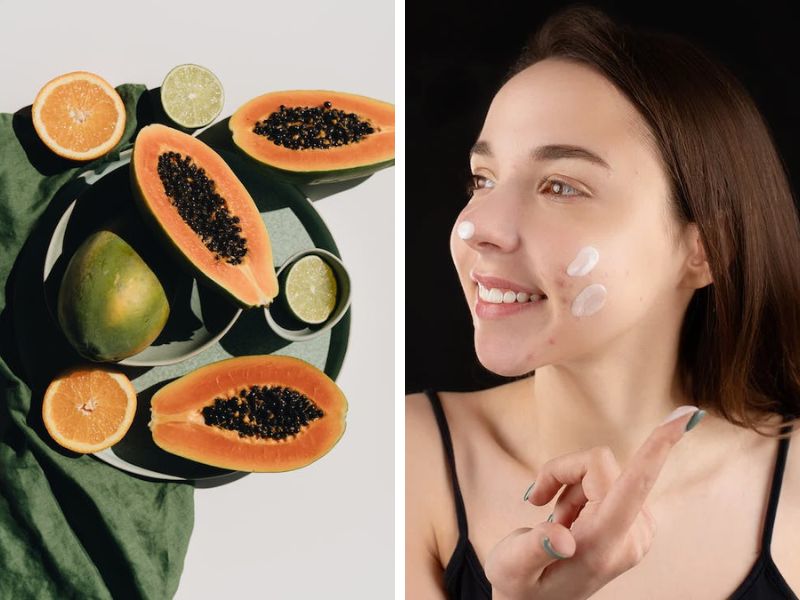A hormonal increase in acne tends to occur when you’re nearing your period, so your hormones are the main culprit. It can seem like nothing you do can prevent breakouts during that time of the month, no matter how diligently you follow your skincare routine.
It can be frustrating to deal with hormonal acne, especially if you’ve always been told there’s nothing you can do. Here, skin care experts explain where hormonal acne manifests, what age demographic experiences it more, and how to treat it.

Image Credit: Pexels/Anna Nekrashevich
Hormonal Acne: What Is It?
Renée Rouleau, the founder of her eponymous skincare brand, explains that hormonal acne occurs in adulthood with whiteheads, blackheads, and painful cysts under the skin.
Hormonal Acne: What Causes It?
Our sebaceous glands produce excess oil due to hormone fluctuations. Pre-period hormonal shifts can result in thicker skin oil and water retention, leading to narrower pore linings. Rouleau points out that the more viscous crude attempting to enter a thinner opening creates an ideal breakout environment.
How Does Hormonal Acne Manifest?
Dermatologist Dr. Elyse Love, M.D., explains that hormonal acne usually presents as cystic, inflamed, painful acne on the jawline, chin, between the eyebrows, chest, back, and buttocks. Some people only experience hormonal acne on their faces, while others only experience it on their bodies.

Image Credit: Pexels/alleksana & Pexels/Anna Nekrashevich
Is Hormonal Acne Preventable?
The best way to prevent these breakouts is to make lifestyle changes. Below are some of Rouleau’s best prevention tips:
- Taking vitamin B6 will help
- Reduce dairy intake
- Take probiotics orally
- Keep track of your routines
Is Hormonal Acne Treatable?
Every person’s skin is different, and we all have unique concerns. Consult a dermatologist for the best treatment options for hormonal acne. Rouleau recommends her brand’s Anti Bump Solution, “which is specifically formulated for cystic acne and has even replaced painful cortisone shots for hormonal acne.” Rouleau even recommends seeing a gynecologist because they understand hormone levels and can assess your acne.